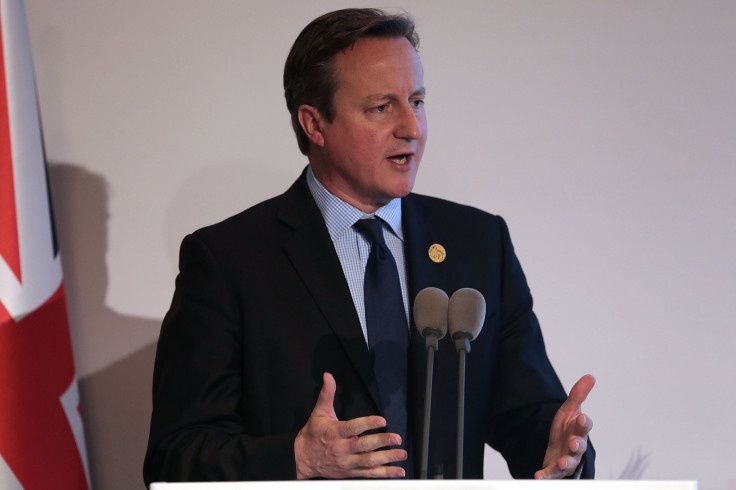UK To Boost Spending On Military Equipment While Government Struggles To Meet Surplus Target

The British government is set to announce a 178 billion pound ($270 billion) investment in defense equipment and support over the next decade, according to a statement released by the prime minister’s office. The move, which increases the defense equipment budget by 7 percent, comes as countries across Europe remain in a state of high alert following the latest attacks in Paris carried out by the Islamic State group earlier this month.
“This is vital at a time when the threats to our country are growing. From the rise of ISIL and greater instability in the Middle East, to the crisis in Ukraine, the threat of cyber attacks and the risk of pandemics, the world is more dangerous and uncertain today than five years ago,” Cameron will say during his speech to parliament Monday, according to prepared remarks. “So while every government must choose how to spend the money it has available, every penny of which is hard-earned by taxpayers, this Government has taken a clear decision to invest in our security and safeguard our prosperity.”
As part of the government’s five-year strategic defense and security review, Cameron will outline plans to increase the country’s military capability through the purchase of new maritime patrol aircraft and fighter jets -- including nine new Boeing P8 patrol aircraft. The plan also includes funding a series of rapid response “strike brigades” that will be made up of up to 5,000 personnel each and would include 600 armored vehicles.
Earlier, on Sunday, the U.K.’s Chancellor of the Exchequer George Osborne announced plans to boost counterterrorism funding by 30 percent over the next decade, even as the government struggles to deal with worse-than-expected borrowing figures released last week.
The U.K. recorded the largest budget deficit for the month of October since 2009, according to data released last week. Net borrowing, excluding public-sector banks, was 8.2 billion pounds ($12.44 billion) compared with 7.1 billion pounds ($10.77 billion) a year earlier. The uptick in defense expenditure would require an estimated 20 billion pound ($30 billion) spending cut elsewhere, as the Conservative government aims to run a budget surplus by 2020.
“The precise level of the surplus will be set out in the forecasts on Wednesday,” Osborne told the BBC Sunday.
Osborne and Cameron have also spoken out in favor of carrying out airstrikes in Syria. Currently, the U.K. -- as part of an international U.S.-led coalition -- is carrying out airstrikes against ISIS in Iraq. However, Cameron’s push to extend the campaign to Syria has so far been rejected by the British parliament.
“I don’t think we can wait for that civil war to end before taking the fight to ISIL in its base, which is in Syria. And that requires the RAF taking part, in my view, in the international efforts that are going on to degrade that organization,” Osborne told the BBC. “We will call a vote when we are confident we have the numbers to win it.”
© Copyright IBTimes 2024. All rights reserved.






















